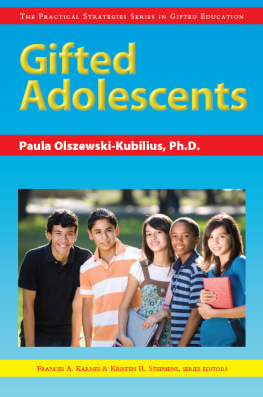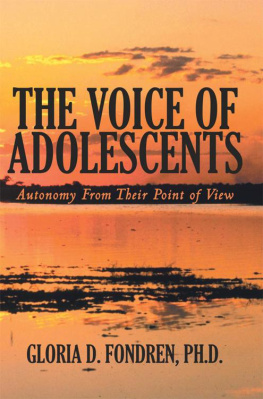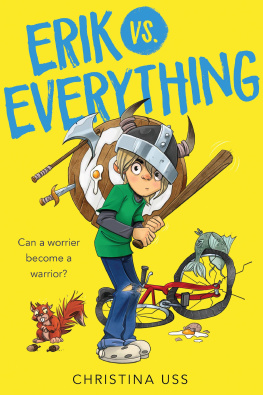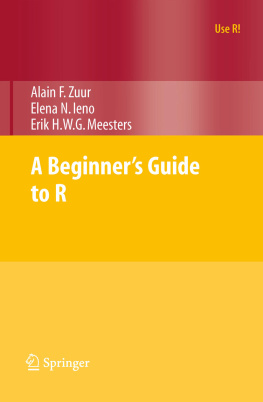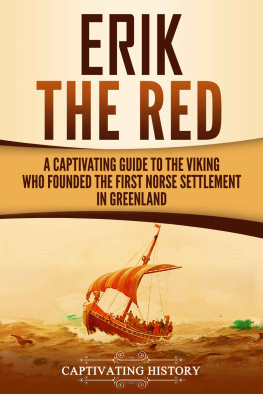Adolescents, Cultures, and Conflicts
Michigan State University Series on Children, Youth, and Families
(Vol. 3)
Garland Reference Library of Social Science
(Vol. 1112)
MICHIGAN STATE UNIVERSITY SERIES ON CHILDREN, YOUTH, AND FAMILIES
John Paul McKinney, Senior Editor
Lawrence B. Schiamberg, Advisory Editor
Amy B. Slonim and Linda Spence, Associate Editors
Child Maltreatment and Optimal Caregiving in Social Contexts
by Diana Baumrind
Adolescent Parenthood and Education
Exploring Alternative Programs
by Mary Pilat
University-Community Collaborations for the Twenty-First Century
Outreach Scholarship for Youth and Families
edited by Richard M. Lerner and Lou Anna K. Simon
Adolescents, Cultures, and Conflicts
Growing Up in Contemporary Europe
edited by Jari-Erik Nurmi
Adolescents, Cultures, and Conflicts
Growing Up in Contemporary Europe
Edited by Jari-Erik Nurmi
First published 1998 by Garland Publishing, Inc.
Published 2019 by Routledge
2 Park Square, Milton Park, Abingdon, Oxon OX14 4RN
52 Vanderbilt Avenue, New York, NY 10017
First issued in paperback 2019
Routledge is an imprint of the Taylor & Francis Group, an informa business
Copyright 1998 by Jari-Erik Nurmi
All rights reserved. No part of this book may be reprinted or reproduced or utilised in any form or by any electronic, mechanical, or other means, now known or hereafter invented, including photocopying and recording, or in any information storage or retrieval system, without permission in writing from the publishers.
Notice:
Product or corporate names may be trademarks or registered trademarks, and are used only for identification and explanation without intent to infringe.
Library of Congress Cataloging-in-Publication Data
Adolescents, cultures, and conflicts : growing up in contemporary Europe / edited by Jari-Erik Nurmi.
p.cm. (Michigan State University series on children, youth, and families ; vol. 3) (Garland reference library of social science ; vol. 1112)
Includes bibliographical references and index.
ISBN 0-8153-2389-1 (alk. paper)
1. TeenagersEuropeSocial conditions. 2. AdolescenceEurope. 3. Social changeEurope. I. Nurmi, Jari-Erik. II. Series: Michigan State University series on children, youth, and families ; v. 3. III. Series: Garland reference library of social science ; v. 1112.
HQ799.E9A351998
305.235094dc21 | 97-43496 CIP |
ISBN 13: 978-1-138-96599-7 (pbk)
ISBN 13: 978-0-8153-2389-1 (hbk)
Contents
Chapter One
Growing Up in Contemporary Europe: An Overview
Jari-Erik Nurmi
Chapter Two
Adolescents Subjective Well-Being in Fourteen Cultural Contexts
Alexander Grob
Chapter Three
Social Habitus and Future Plans
Michael Motola, Pentti Sinisalo, and Jean Guichard
Chapter Four
Dutch and Swedish Adolescents Understanding of Peace and War
Ilse Hakvoort, Solveig Hgglund, and Louis Oppenheimer
Chapter Five
The Gains and Losses of Bulgarian Youths during the Transition from Socialism to Democracy
Luba Botcheva
Chapter Six
Timing of First Romantic Involvement
Rainer K. Silbereisen and Beate Schwarz
Chapter Seven
Adolescents, Families, and German Unification
Brbel Kracke, Maren Oepke, Elke Wild, and Peter Noack
Chapter Eight
Adolescents and Political Violence
Mchel D. Roe and Ed Cairns
Chapter Nine
Acculturation and Adaptation
Karmela Liebkind and Liisa Kosonen
Chapter Ten
Immigration, Xenophobia, and Youthful Opinion
Charles Westin
Chapter Eleven
Conclusions and Perspectives
Jari-Erik Nurmi
The publication of Jari-Erik Nurmis book, Adolescents, Cultures and Conflicts: Growing Up in Contemporary Europe, marks the presentation of a valuable volume in its own right as well as the continued successful development of the Michigan State University (MSU) Series on Children, Youth, and Families. The Nurmi volume promises to be a seminal contribution to understanding the nature and character of contemporary European adolescence and, in turn, to the eventual development of community-based programs for addressing the unique and contextually influenced issues and concerns of adolescents in a changing Europe. In particular, the book addresses issues of adolescent development that have emerged in the face of the dramatic political and social changes in Europe in the 1990s, including the collapse of Soviet hegemony, migrations across national borders, and ethnic/religious conflicts. Furthermore, the scholarly work in the volume is a prime example of the creative emphasis on cutting-edge scholarship that the MSU Series representsa focus on issues of social policy and practical application in relation to the needs of diverse groups of children, youth, and families in communities in the United States and around the world.
In addition, the Nurmi volume provides an exemplary illustration of the goals of the Institute for Children, Youth, and Families (ICYF) as an example of the relationship of outreach scholarship to essential issues of policy and program development which, in turn, has the potential for enhancing the lives of children, youth and families in diverse national and international communities. Likewise, the publication of this book offers evidence that the MSU Series, initiated by ICYF and well served by the commitment and intellectual leadership of Senior Editor John Paul McKinney with the able guidance of Marie Ellen Larcada of Garland Publishing, serves as a compendium of scholarly work reflecting the very best scholarship aimed at enhancing the life experiences of children, youths, and families. As such, both the Nurmi volume and the MSU Series provide further justification for the importance and feasibility of the mission of ICYF in integrating research and outreach.
The mission of the Institute for Children, Youth, and Families at MSU is based on a vision of the nature of a land-grant university as an academic institution with a responsibility for addressing the welfare of children, youths, and families in communities. More specifically, the mission of ICYF is shaped by an ecological perspective on human development that places the life span development of human beings in the context of the significant settings of human experience, including community, family, work, and peer networks (Lerner et al., 1994; Schiamberg, 1988). Historically, the ecological perspective has both been associated with and a guiding frame for colleges of home economics or, as they are more recently termed, colleges of human development, human ecology, or family and consumer sciences (Miller and Lerner, 1994). Using the ecology of human development as a conceptual framework, the Institute for Children, Youth, and Families continues to develop programs that integrate the critical notion of development in context with the attempt, indeed the necessity, of creating connections between such scholarship and social policy, program design, and evaluation.




